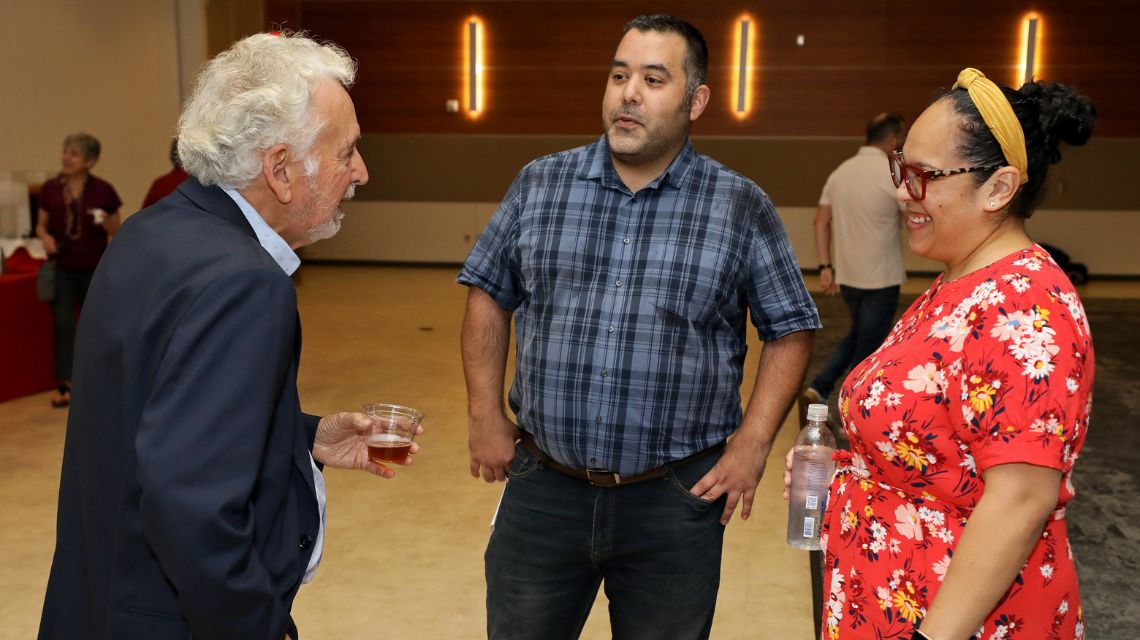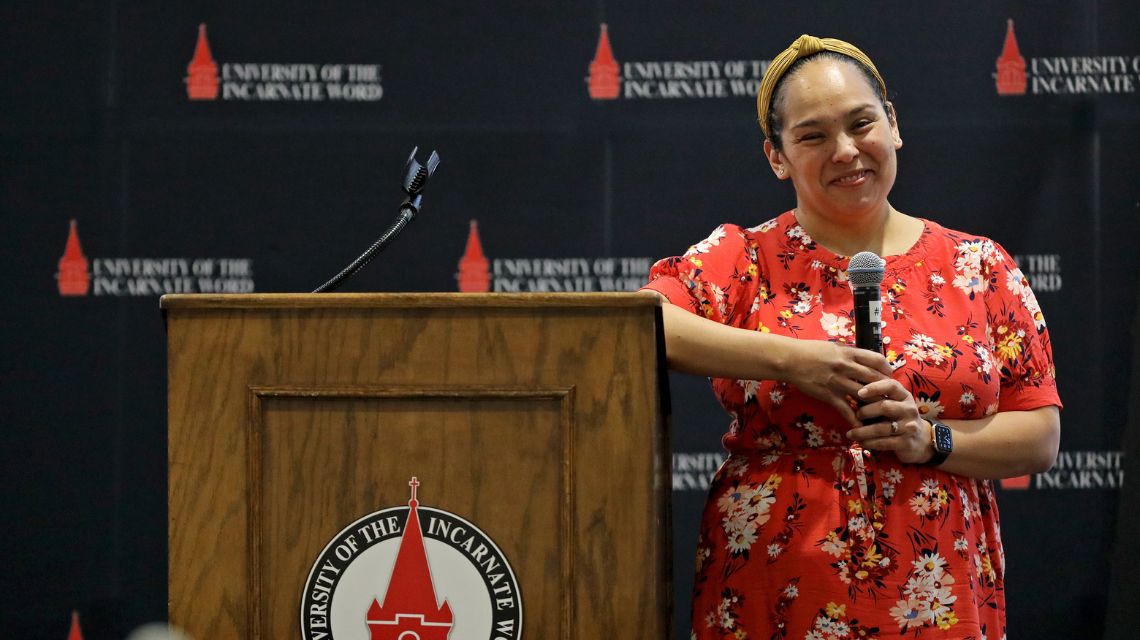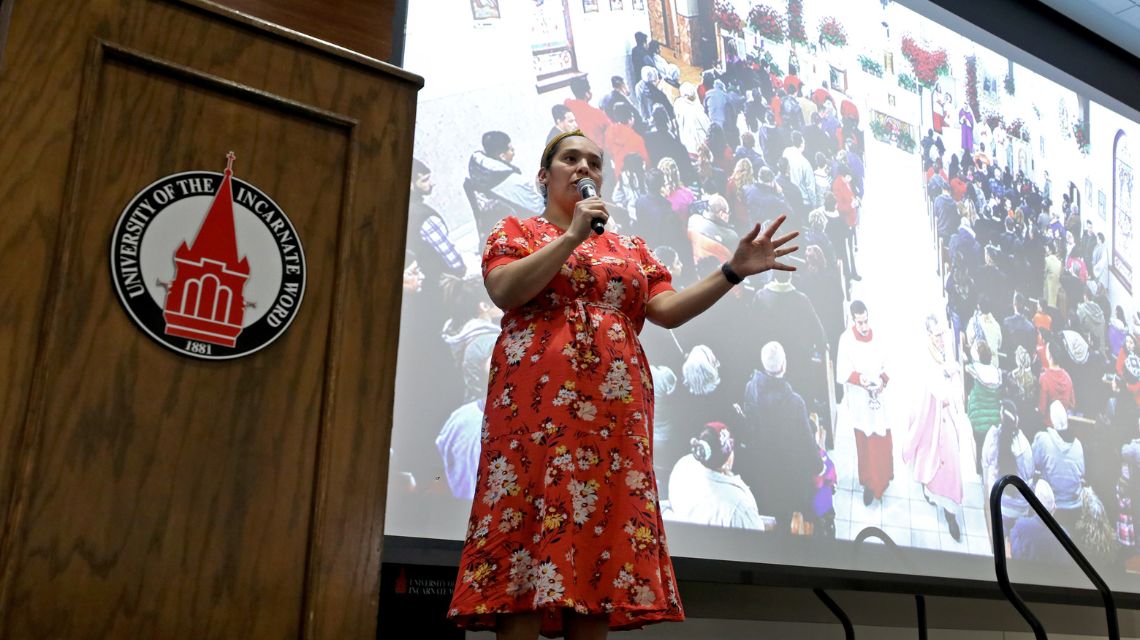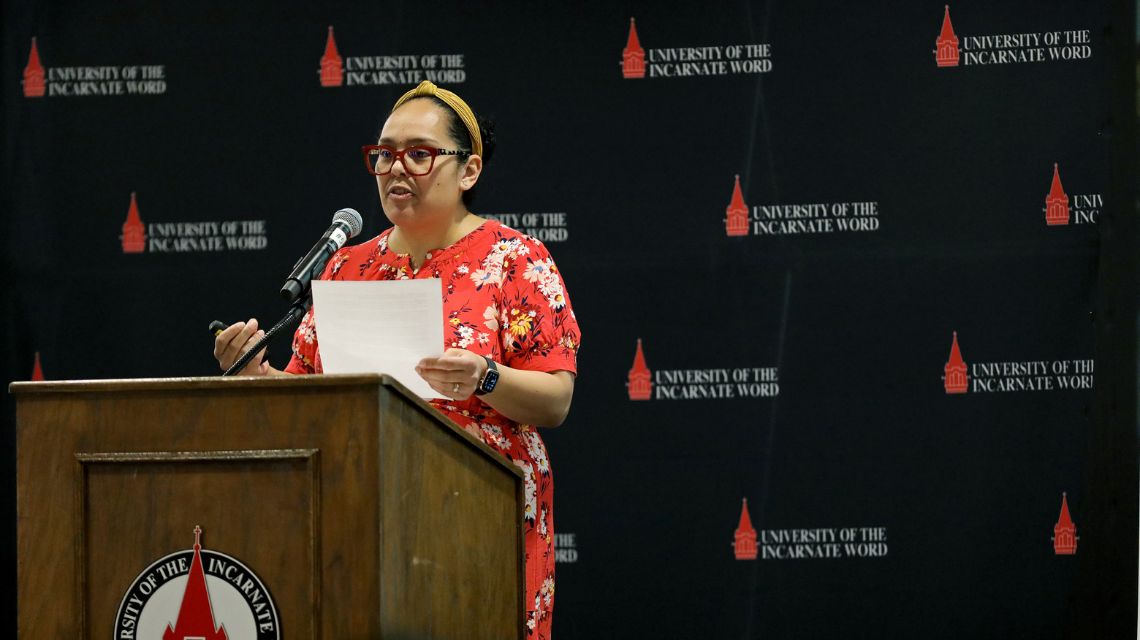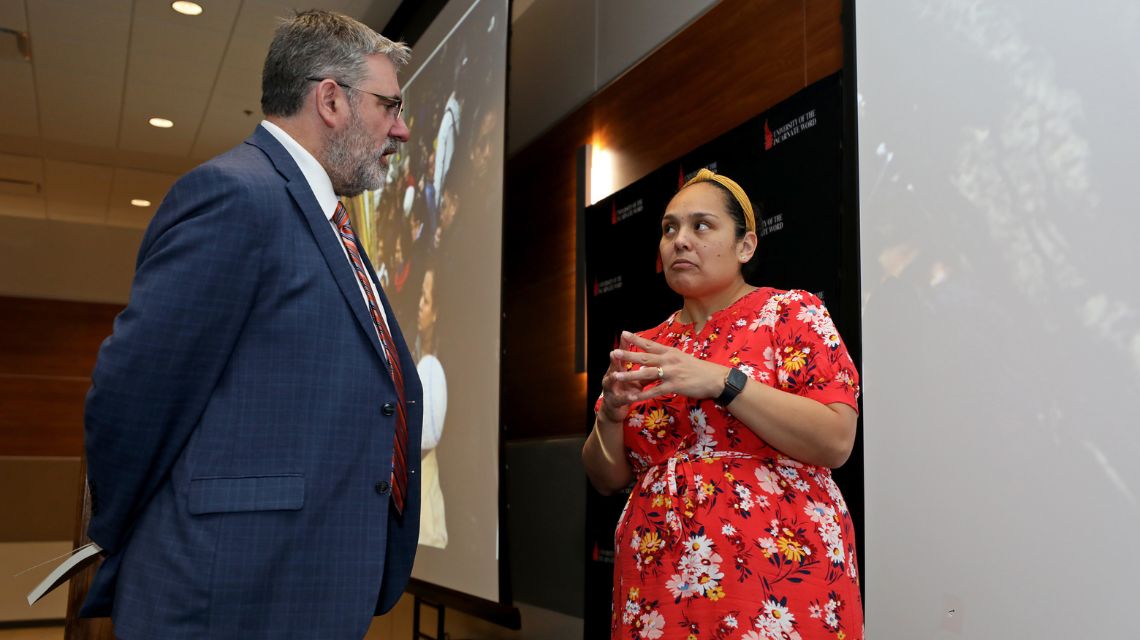UIW Religious Studies Hosts Annual Pierre Lecture
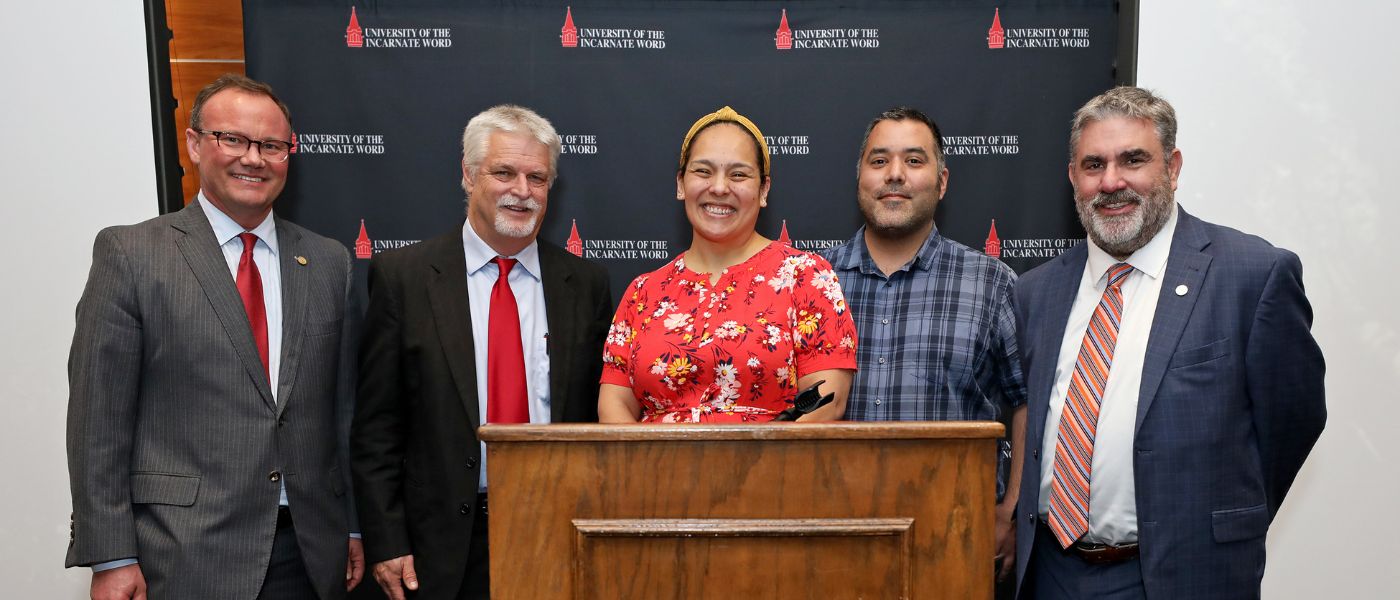
The UIW Department of Religious Studies was proud to host the UIW community for the annual Pierre Lecture on March 7, in the SEC Ballroom. This year, Dr. Nichole M. Flores, associate professor of Religious Studies at the University of Virginia, delivered a lecture on her recently published book The Aesthetics of Solidarity: Our Lady of Guadalupe and American Democracy.
“The story and image of Our Lady of Guadalupe is intertwined with Mexican-American history and identity,” says Dr. Horacio Vela, assistant professor in the Department of Religious Studies. “Yet many students, even in San Antonio and South Texas, might not fully understand the story and its significance or even learn about it in school or college even if they see the image everywhere at home, church, or in artwork and murals.”
A crowd of nearly 100 students, staff, faculty and community members gathered for the event. UIW President Dr. Thomas M. Evans introduced Flores. In her lecture, Flores argued for the capacity of Our Lady of Guadalupe, long used by Latine Catholics as a symbol in the Chicano movement and United Farm Workers' movements, to make democratic claims. Drawing from Latine theological aesthetics and Catholic social thought, Flores offered a lived theology of Chicano Catholics in Denver and their use of Guadalupe in the pursuit of justice in response to gentrification. She provided a framework for a community of interpretation where members stand in solidarity to respond to justice claims made from diverse religious and cultural communities. Flores also emphasized the role of Juan Diego in the Guadalupe story and the way that he empowers devotees and activists who march with the image.
“UIW is a Catholic Hispanic-Serving Institution, the largest one in the state of Texas, and so it is important to provide our students with opportunities to learn more about Mexican-American and Latinx culture, religion and theology,” says Vela. “Moreover, the annual Cesar Chavez March will take place this month, and the Guadalupe image was used in civil rights marches in the past and is still used today in racial and social justice movements.
"Dr. Flores’ presentation helps us understand why the Guadalupe image and the story of Juan Diego have been so powerful for religious activism past and present. Many people tend to think of the civil rights movement as purely secular, but it is important to remember that churches and religious movements were foundational for these movements. The Rev. Dr. Martin Luther King was a pastor and had a PhD in Theology. Cesar Chavez and Dolores Huerta were both inspired by their Catholic faith and the Guadalupe story.”
The Religious Studies Department established the Pierre Lecture series in 2003 to focus on the contributions of women scholars who are addressing current issues in the fields of theology and religious studies, particularly those scholars who are grappling with the complex issues of social justice, ecology and globalization. The department focuses on scholars who are doing critical work in areas consistent with the mission of the Sisters of Charity of the Incarnate Word such as human rights, respect for human dignity, systemic change, globalization, multiculturalism, the environment and other pertinent topics.
The goal of the series is twofold. First, that the audience will benefit from seeing women as academic role models contributing to the advancement of scholarship and its application. Second, the department wants to expose the audience to the works of current scholars who are leaders in their area. With a long history of educating women and men to be “enlightened citizens” and leaders, both in the local community and across the globe, the department believes that this series offers attendees an opportunity to learn from the insights of leading women scholars and practitioners in the field.
For the first decade, the lecture was supported by the Pierre Fund Committee of the Sisters of Charity of the Incarnate Word, who agreed with this vision and generously funded the lecture series. Since then, the College of Humanities, Arts and Social Sciences has supported the annual Pierre Lecture.


